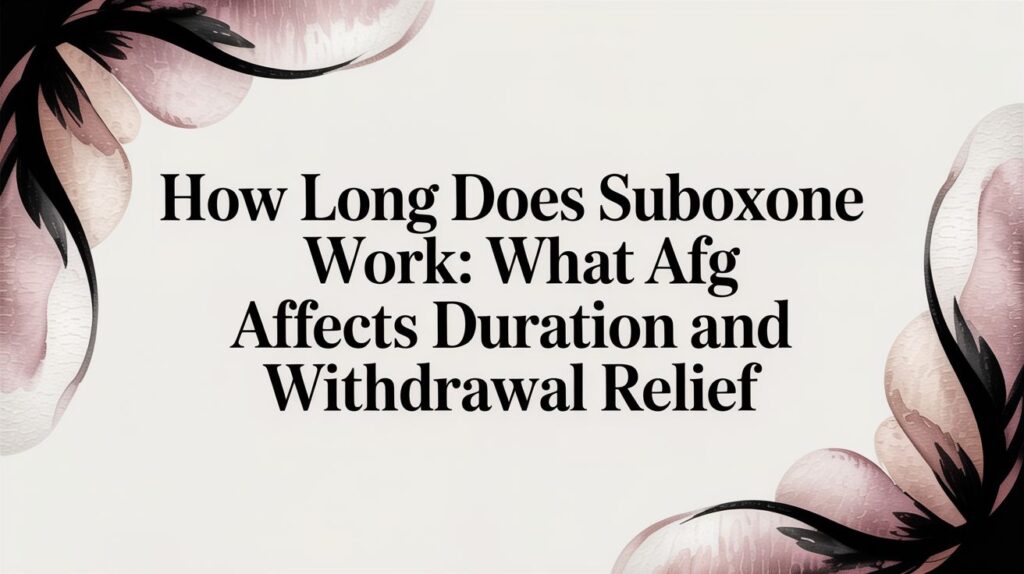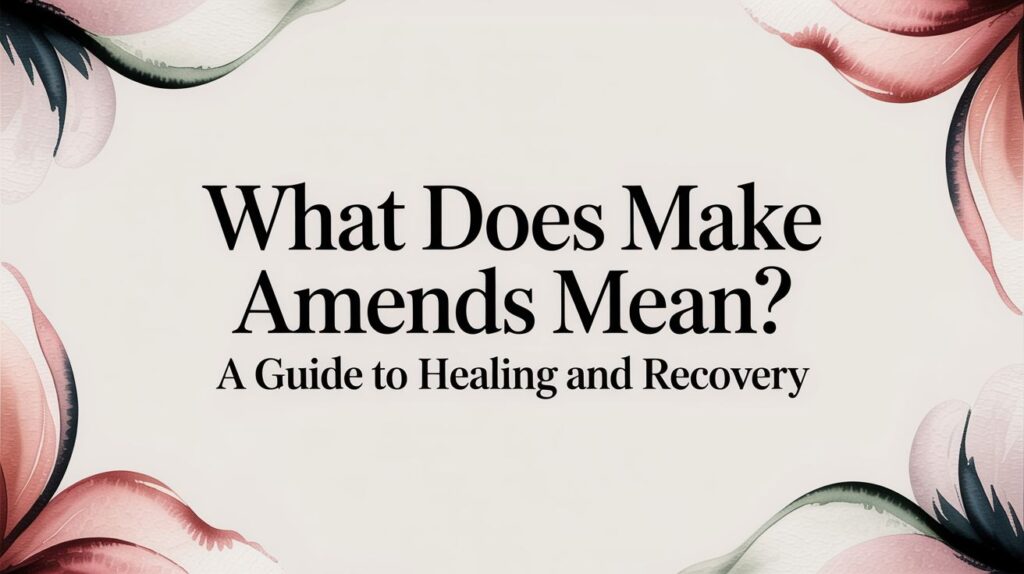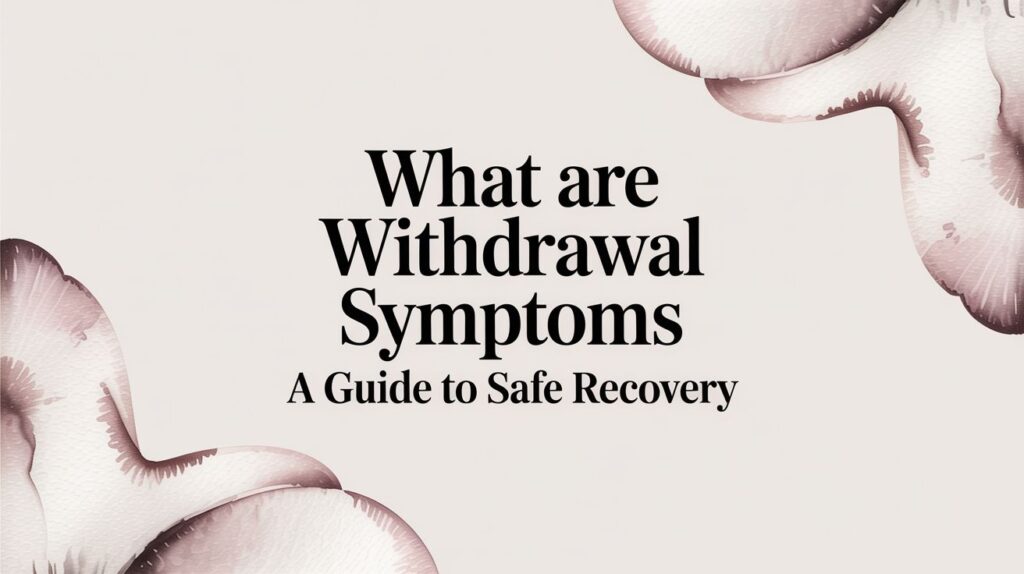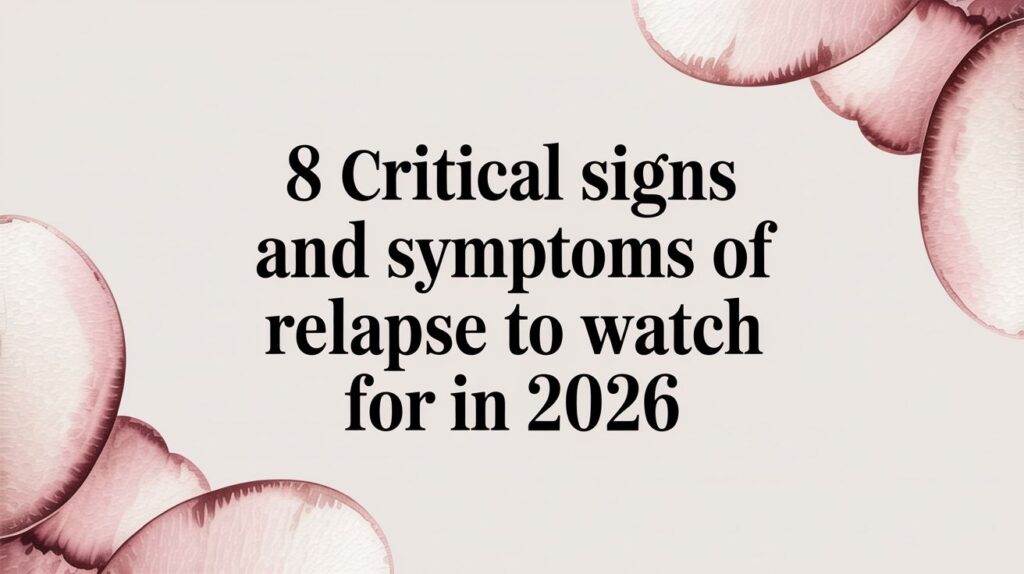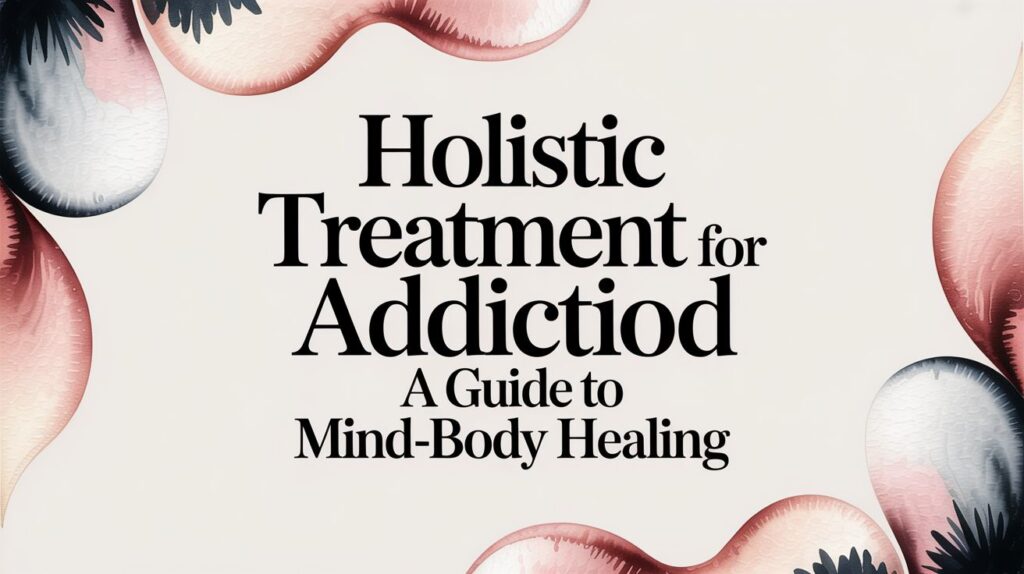Trying to find the right Houston Texas mental health services can feel like you've been handed a map of the city with no street names. It's confusing, and you're not sure where to even begin. This guide is meant to be your starting point, clearing up the options so you can confidently take that crucial first step. We'll walk through everything from one-on-one counseling for stress to more structured outpatient addiction programs.
Starting Your Search for Mental Health Care in Houston

Deciding to seek help is a huge act of self-care, but let's be honest: the process of finding that help can feel overwhelming, especially in a city as big as Houston. The goal isn't just finding any service; it's about finding the one that truly fits your life—your schedule, your personal goals, and your specific needs.
Think of the mental health world as a spectrum of care. On one end, you have services designed to help you manage daily stressors, anxiety, or mild depression. On the other, you’ll find more intensive programs that offer structured support for things like substance use disorders or more severe mental health conditions.
Understanding the Local Need for Care
The demand for mental wellness support here in Houston is significant, and it's important to know you're not alone in seeking it out. Our community faces some real challenges, with a ratio of about 800 people for every one mental health provider.
This shortage is made even tougher by the fact that over 13% of adults in Harris County report dealing with frequent poor mental health, which makes finding accessible care more critical than ever. This gap between need and availability is exactly why understanding your options from the get-go is so important—it helps you target your search effectively and connect with the right professionals faster.
The most important step is often the first one. Recognizing the need for support and exploring your options is a powerful move toward healing and growth.
Matching Your Needs with the Right Services
So, where do you begin? Start with a simple self-assessment. Are you looking for a space to talk through life changes and learn better coping skills? Or do you need a more structured environment to address deeper issues like trauma or an addiction?
Answering that simple question helps narrow your focus immediately. For example:
- Individual Therapy: This is best for one-on-one sessions focused on personal challenges like anxiety, depression, or relationship issues. It's the classic "talk therapy" model.
- Intensive Outpatient Programs (IOP): These are ideal if you need more support than weekly therapy can offer, often for substance use or co-occurring disorders, but you want to keep living at home.
- Partial Hospitalization Programs (PHP): This is a step up from IOP, offering day-long treatment for more acute conditions without requiring you to stay overnight.
For anyone specifically looking for structured support with addiction, learning more about the benefits of an outpatient drug rehab in Houston can give you a clear picture of what that journey looks like. This kind of program is designed to let you integrate recovery directly into your daily life, which is a key ingredient for lasting wellness.
To make things even clearer, here’s a quick table to help you match your needs with the right type of outpatient service available right here in Houston.
Quick Guide to Outpatient Mental Health Services in Houston
| Service Type | Best For | Common Focus Areas |
|---|---|---|
| Individual Therapy | One-on-one support for personal growth, stress management, and specific life challenges. | Anxiety, depression, grief, relationship issues, life transitions. |
| Intensive Outpatient (IOP) | Structured support several times a week while maintaining work, school, or home life. | Substance use disorders, co-occurring mental health conditions, eating disorders. |
| Partial Hospitalization (PHP) | Daily, intensive treatment for acute symptoms without requiring an overnight hospital stay. | Severe depression, acute psychiatric episodes, step-down from inpatient care. |
| Group Therapy | Building community and learning from others with similar experiences in a guided setting. | Social anxiety, trauma recovery, addiction support (e.g., 12-Step). |
| Family/Couples Counseling | Improving communication and resolving conflicts within relationships. | Marital issues, parenting challenges, family system dynamics. |
Think of this table as a starting point. Your personal situation is unique, and a professional assessment can help pinpoint the exact level of care that will give you the best chance at success.
Recognizing Common Mental Health Challenges
Before you can find the right help, it helps to put a name to what you're feeling. This isn't about diagnosing yourself from a checklist, but about building self-awareness—getting a clearer picture of your internal world. Understanding the nature of the struggle is the first real step toward finding effective Houston Texas mental health services that can guide you back to feeling like yourself again.
So many people hold back from seeking help because they think their feelings aren't "bad enough" or are just a normal part of life. While stress is definitely normal, persistent, overwhelming feelings that get in the way of your daily life are a sign that something deeper is at play. The goal here isn't to get stuck on clinical labels, but to explore what these challenges actually feel like in the real world.
What Anxiety and Depression Actually Feel Like
Anxiety and depression are two of the biggest reasons people seek support, but they show up differently for everyone. These aren't just fleeting moods; they're persistent states that can throw a shadow over every part of your day.
Persistent Anxiety: Imagine a smoke alarm in your house that just won't turn off. That constant, low-grade blare keeps you on edge, making it impossible to relax, focus, or even get a decent night's sleep. This is what generalized anxiety can feel like—a relentless sense of dread or worry about everything and nothing at the same time.
Overwhelming Depression: Think of trying to run a race through waist-deep water. Every single step requires a monumental effort. Your movements are slow, and you feel heavy, bogged down, and completely exhausted. Depression can feel just like that, draining your energy and motivation until even simple tasks feel like climbing a mountain.
It’s so important to remember that these experiences are not signs of weakness. They are legitimate health conditions, and in Houston, they are becoming more and more common. In fact, one in 13 adults in Texas goes through a major depressive episode, and our city has seen a steady rise in mental distress. You can explore more about the state of mental health in Houston to understand these community-wide trends.
The Overlap with Substance Use
It’s a common story: people turn to substances like alcohol or drugs to quiet the "alarm" of anxiety or to get a temporary lift out of the "deep water" of depression. This is known as self-medication, and while it might feel like a solution in the moment, it’s a dangerous coping mechanism that almost always makes the underlying mental health condition worse over time.
This creates a vicious cycle where substance use fuels the mental health symptoms, and those symptoms, in turn, drive the urge to use again. This is what professionals call a co-occurring disorder, or a dual diagnosis.
Recognizing that your substance use might be a symptom of a deeper emotional struggle is a critical insight. It means that treating only the addiction, without addressing the anxiety or depression, is like fixing a leaky pipe without ever turning off the main water valve.
Identifying the Need for Professional Support
So, how do you know when it's time to reach out for help? Think of these signs not as a diagnostic checklist, but as gentle nudges that professional support could make a real difference in your life.
Common Signals It's Time to Talk to Someone:
- Changes in Daily Functioning: You're struggling to keep up with work, school, or family responsibilities. Maybe you're calling in sick more often or find yourself avoiding social events you used to look forward to.
- Emotional Intensity: Your reactions feel completely out of proportion to the situation. A small setback might trigger intense anger, deep sadness, or a full-blown panic attack.
- Physical Symptoms: You're dealing with unexplained headaches, stomach issues, constant fatigue, or major changes in your sleep or eating habits.
- Relationship Strain: Your mood or behavior is starting to cause friction in your relationships with friends, family, or your partner.
- Loss of Interest: You've lost interest in hobbies and activities that once brought you joy and a sense of purpose.
If any of this feels familiar, it doesn't mean you're broken. It just means you're human, and you're carrying a heavy load. Reaching out for support is a true sign of strength and the first step toward getting your life back.
Exploring Different Types of Outpatient Therapy
Therapy isn't a one-size-fits-all solution. It's more like a versatile toolkit, filled with different approaches designed to tackle specific challenges. When you're looking for Houston Texas mental health services, understanding these methods empowers you to find a path that actually resonates with your personal goals.
Think of it this way: if your car is making a strange noise, you wouldn't just take it to any mechanic. You'd want a specialist who knows your specific make and model. Therapy is similar—different methods are engineered to solve different kinds of internal "noise." The right fit can make the difference between feeling truly understood and feeling completely lost.
Finding the right support often starts with knowing what options are available near you. This visual guide helps illustrate how accessible different mental health services can be throughout the Houston area.
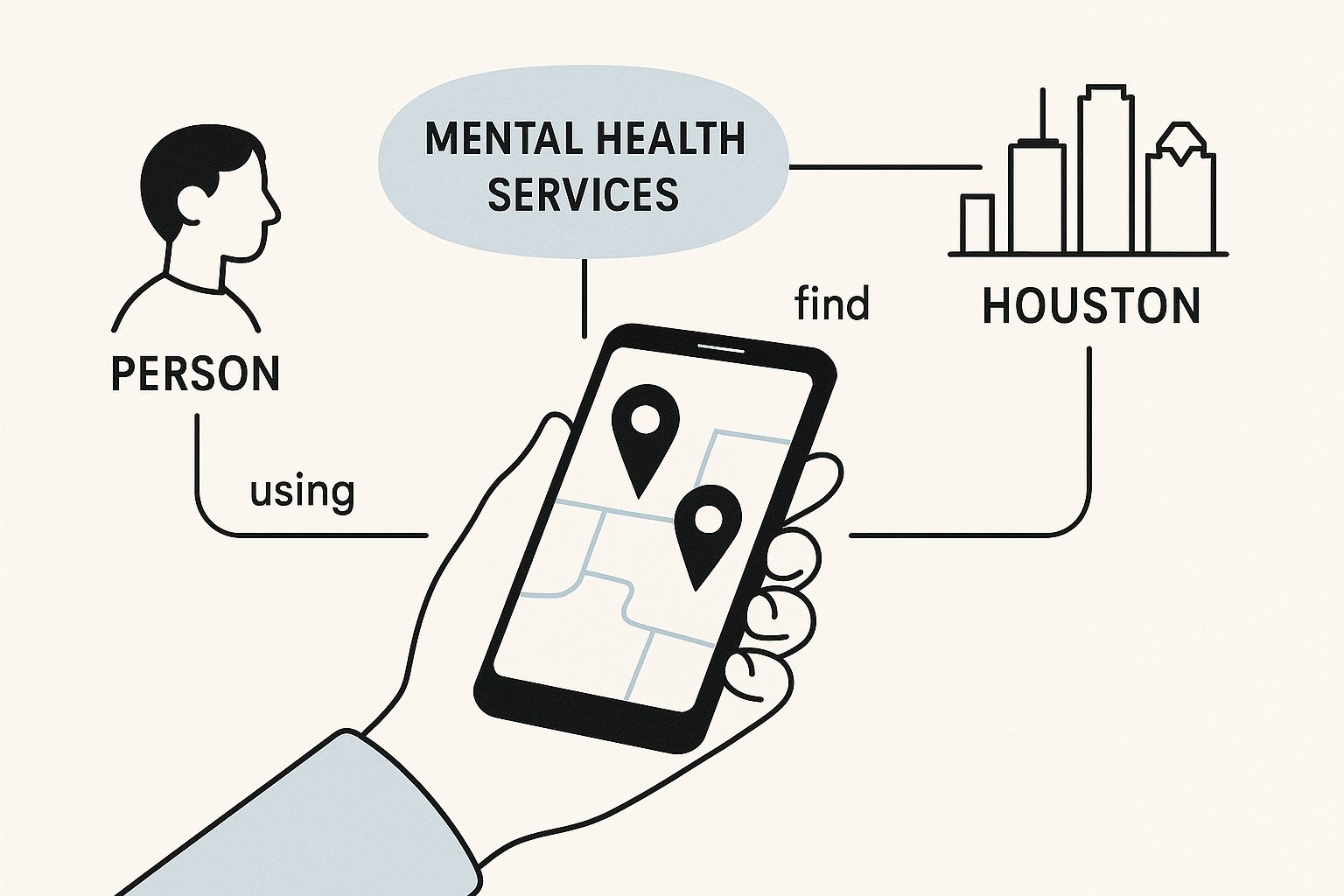
As the infographic shows, specialized care is spread across the city, making it easier to connect with a provider who fits your needs without having to travel far from your community.
Cognitive Behavioral Therapy (CBT): The Mental Software Update
One of the most widely used and effective approaches you'll encounter is Cognitive Behavioral Therapy (CBT). Imagine your brain runs on a kind of mental software, with certain lines of code—your thoughts—dictating how you feel and act. Over time, this code can become buggy or outdated, leading to unhelpful patterns like anxiety or depression.
CBT is like a software update for your mind. Instead of dwelling endlessly on the past to figure out why the bug is there, it gives you practical tools to identify and rewrite the faulty code in the present moment. A therapist helps you recognize negative thought patterns and challenge them with more balanced, realistic ones.
For example, you might automatically think, "I failed the test, so I'm a total failure." CBT helps you pause, examine that thought, and reframe it: "I failed one test. It's disappointing, but it doesn't define my intelligence. I can study differently next time." It's a structured, goal-oriented approach focused on building practical skills you can use for the rest of your life.
Eye Movement Desensitization and Reprocessing (EMDR): Reorganizing the Mental Filing Cabinet
For those dealing with trauma, Eye Movement Desensitization and Reprocessing (EMDR) offers a unique way to heal. Think of a traumatic memory as a messy, disorganized file that was shoved into your brain's filing cabinet during a moment of crisis. Every time you bump into that file, all the intense emotions, sounds, and physical sensations spill out, forcing you to relive the experience.
EMDR is a specialized process that helps you carefully take that messy file out, organize its contents, and refile it properly. Through a series of guided eye movements or other forms of bilateral stimulation, the therapy helps your brain reprocess the traumatic memory so it loses its intense emotional charge. The memory doesn't disappear, but it becomes just that—a memory. It’s stored away correctly, no longer capable of hijacking your present. This therapy has become a cornerstone for treating PTSD and other trauma-related conditions.
Dialectical Behavior Therapy (DBT): Building Emotional Regulation Skills
If CBT is about changing your thoughts, Dialectical Behavior Therapy (DBT) is about learning to manage intense emotions and improve your relationships. It's incredibly effective for people who feel like their emotions are on a constant, overwhelming rollercoaster.
DBT is built on four key skill modules that provide a solid foundation for emotional stability:
- Mindfulness: Learning to stay grounded and aware in the present moment, without judgment.
- Distress Tolerance: Developing skills to get through crisis situations without making things worse.
- Emotion Regulation: Understanding your emotions and learning how to influence them for the better.
- Interpersonal Effectiveness: Communicating your needs and setting boundaries in a way that maintains both self-respect and your relationships.
This approach is especially powerful because it accepts you as you are while also helping you build a life you find more fulfilling. It balances acceptance with change, a core principle that resonates deeply with many people.
The Power of Group and Family Therapy
Beyond individual work, many Houston providers offer group and family therapy. Group therapy creates a supportive community where you can share experiences and learn from others facing similar challenges, reminding you that you aren't alone. Family therapy, on the other hand, treats the family as a single system, working to improve communication and resolve conflicts that affect everyone.
For many, mental health struggles are tangled up with substance use. When this is the case, specialized care is crucial. To understand this dynamic better, you can learn more about how a dual diagnosis outpatient treatment program works to address both conditions at the same time. This integrated approach is often the key to lasting recovery, as it treats the root causes instead of just the symptoms.
Ultimately, choosing the right therapeutic model is a collaborative decision between you and your provider, ensuring the path forward aligns perfectly with your healing journey.
How to Choose the Right Therapist for You
Finding a therapist is about so much more than just checking boxes for credentials and insurance plans. If there’s one thing that predicts whether therapy will be successful, it’s the therapeutic relationship—that gut feeling of trust, connection, and teamwork you have with your provider.
Think of it like hiring a guide for a tough mountain climb. Their technical skills are essential, of course, but you also need to feel they genuinely understand where you’re trying to go and will have your back every step of the way.
This connection is what turns a clinical appointment into a safe space for real healing. When you feel seen and understood, you’re far more likely to open up, tackle difficult emotions, and actually consider new ways of thinking. That’s why spending time to find the right person isn’t a luxury; it’s the most important part of the entire process.
Look Beyond the Resume
While qualifications, licenses, and specialties are great starting points, they don’t tell you the whole story. A therapist can have an incredible resume, but if their communication style just doesn’t click with you, making progress can feel like trying to run through mud. The goal is to find someone who is both a skilled professional and a good personal fit.
To get started, think about what you need in a supportive relationship. Do you work best with someone who is direct and structured? Or do you prefer a more gentle, exploratory approach? Knowing your own preferences will help you narrow down the search for Houston Texas mental health services and find a professional who feels like a true ally.
Key Questions to Ask a Potential Therapist
Most therapists offer a free, brief consultation call, and you should absolutely take advantage of it. This is your chance to interview them and get a real feel for their personality and approach. Don't be shy about asking direct questions—you are an active partner in your own care. Think of this initial chat as a vibe check before you commit to a full session.
To help you get the most out of that conversation, here are some important questions to ask, broken down by category.
| Category | Sample Question |
|---|---|
| Approach & Philosophy | "Can you describe your therapeutic style and how you approach the specific issues I'm facing?" |
| Experience & Specialization | "What experience do you have working with clients who have similar concerns or backgrounds to mine?" |
| Logistics & Process | "What does progress typically look like for your clients, and how do we measure it together?" |
| Client-Therapist Fit | "How do you help clients feel comfortable and build trust in the therapeutic relationship?" |
These questions go beyond the surface and help you understand the human behind the degree. A good therapist will welcome these questions and answer them with openness and clarity.
Understanding Their Therapeutic Toolkit
During your consultation, it's also smart to ask about the specific methods they use in their practice. For instance, a therapist might use Motivational Interviewing, a collaborative style that helps you tap into your own internal drive to make a change. To get a better handle on this, you can learn more about Motivational Interviewing therapy in our detailed guide. Knowing their techniques helps ensure their tools are the right ones for the job you need to do.
Remember, it's perfectly okay if the first therapist you meet isn't the one. Therapy is a deeply personal journey, and finding the right partner might take a few tries. Trust your intuition—if a conversation feels off or you just don't feel heard, that's a clear sign to keep looking.
Taking the time to make a thoughtful choice sets the stage for a much more effective and meaningful experience. This proactive approach empowers you to find not just any therapist, but your therapist—someone who can truly walk alongside you on your path to wellness.
Navigating the Costs of Mental Health Care
Let's talk about the elephant in the room: cost. It’s a real, valid concern, and for many people, it feels like the biggest roadblock to getting help. But here's the good news: you have more pathways to affordable Houston Texas mental health services than you probably think.
Thinking about payment can feel like trying to learn a new language. Terms like "deductible," "copay," and "out-of-network" get thrown around, and it's easy to feel overwhelmed. My goal here is to break it all down so you feel empowered, not intimidated.
Making Insurance Work for You
For most people with a health plan, insurance is the first tool to pull out of the toolbox. The absolute best first step is to call the member services number on the back of your insurance card. Be ready with a few direct questions. Ask them what your copay is for outpatient therapy and whether you have a deductible you need to hit first.
It’s also critical to understand the difference between "in-network" and "out-of-network" providers.
- In-Network: These therapists and clinics have a pre-negotiated rate with your insurance company. This is your fast track to lower out-of-pocket costs.
- Out-of-Network: You can still see these providers, but your insurance will cover a smaller slice of the bill, leaving you responsible for a larger portion.
When you're digging into the financial side, it helps to get specific, especially for newer treatments. For example, understanding the cost of specific therapies like ketamine can give you a clearer idea of what to expect for specialized services.
Affordable Care Options Beyond Insurance
What if you don’t have insurance, or your plan’s coverage just isn’t cutting it? Don’t worry. Houston has a strong ecosystem of affordable care options designed to make sure finances don’t shut the door on your well-being.
Many community clinics and non-profit organizations offer services on a sliding-scale fee basis. This is a game-changer. It simply means the cost of your session is adjusted based on your income, making professional therapy genuinely accessible. Never hesitate to ask a potential clinic if they have a sliding scale.
Cost should be a consideration, not a conclusion. With the right information and resources, high-quality mental health care in Houston can fit within your budget.
Another fantastic resource? Training centers at local universities, like the University of Houston. They often run clinics where you can get excellent counseling from graduate students—who are under the close supervision of licensed professionals—at a much lower rate.
Community and State-Level Support
The need for accessible care hasn't gone unnoticed. Texas has been actively working to strengthen its mental health infrastructure. The Texas Legislature has boosted funding for key initiatives, including a major investment in the Loan Repayment Program for Mental Health Professionals. This program gives skilled therapists a powerful incentive to work in underserved communities, which directly improves access for Houston residents.
Ultimately, your well-being is the best investment you can ever make. By exploring these different avenues—from getting the most out of your insurance to connecting with community clinics—you can find a path to healing that works with your financial reality. The support you need is out there, and it’s more within reach than you might realize.
Taking Your Next Step Toward Mental Wellness

You’ve explored the landscape of care, learned how to choose a provider, and discovered ways to make treatment affordable. Now it’s time to move from understanding to action.
Making the decision to seek help is a profound act of strength. Every journey toward wellness begins with a single, courageous step forward.
It's easy to feel overwhelmed by all the information, but the most important takeaway is simple: you have options, and you are not alone. Finding the right Houston Texas mental health services is all about connecting with resources that fit your unique situation, and that process can start right now.
Your Immediate Path Forward
To make things easier, it helps to have trusted contacts right at your fingertips. No more endless searching—just clear, actionable resources. Whether you are in a crisis or are simply ready to have a conversation, these local and national organizations are here to support you.
Essential Houston Mental Health Resources:
- For Immediate Crisis Support: If you or someone you know is in immediate distress, dial or text the 988 Suicide & Crisis Lifeline. It provides free, confidential support 24/7.
- For Local Advocacy and Education:NAMI Greater Houston offers invaluable support groups, classes, and resources for individuals and families affected by mental illness. They are a cornerstone of our community's mental health network.
- For Peer-Led Support:The Harris Center for Mental Health and IDD is the state-designated local mental health authority for Harris County, offering a wide range of services and support.
Remember, reaching out is not a sign of weakness; it is the ultimate act of taking control of your well-being. The right support can help you build resilience and find balance.
Developing healthy coping mechanisms is a key part of this journey. For those also navigating recovery, learning new strategies is absolutely essential. You can explore a variety of coping skills for substance abuse in our guide, which offers practical tools for managing triggers and stress.
This final step is all about feeling equipped and confident enough to start. You have the knowledge and the resources—your path to healing is waiting.
Still Have Questions About Houston Mental Health Services?
Deciding to look for mental health support is a huge step, but it often comes with a lot of questions. We get it. This section is designed to give you clear, straightforward answers to the things people wonder about most when they start exploring Houston Texas mental health services. Our goal is to help you feel confident and ready to move forward.
How Do I Know if I Need Therapy?
It can be tough to tell the difference between a string of bad days and something that needs professional attention. Talking to a friend or family member is great, but therapy offers something else entirely: a confidential, impartial space with a trained expert.
Think about therapy if your struggles feel persistent. Are they starting to interfere with your job, your sleep, or your relationships? Do you just feel stuck in a rut you can't shake? A therapist doesn't just listen; they use proven, evidence-based methods to help you spot deep-rooted patterns and build practical coping skills, giving you a structured path to feeling better that friendship alone can't offer.
Outpatient vs. Inpatient Care: What’s the Difference?
The biggest difference between these two boils down to where you sleep at night and how intensive the support is.
- Outpatient Services: This is what our guide focuses on. You live at home and go to scheduled appointments, maybe once a week for individual therapy or a few times a week for a group session. It’s built to help you manage your mental health while keeping up with your daily life.
- Inpatient Services: This means you live at a hospital or treatment facility 24/7. It's for acute mental health crises where someone's safety is an immediate risk and they need round-the-clock medical supervision to get stable.
A good way to think about it is that outpatient care is like ongoing maintenance and skill-building, while inpatient care is for urgent, intensive repair work.
Are Online Therapy Services a Good Option?
Absolutely. Online therapy, often called telehealth, has become an incredibly effective and convenient choice for many people in Houston. It's a fantastic solution if you have a packed schedule, limited transportation, or live in an area with fewer local providers.
For common challenges like anxiety and depression, research shows that telehealth is just as effective as meeting in person. It also gives you access to specialists all across Texas, not just in your immediate neighborhood. The most important thing is to make sure any provider you see is licensed to practice in the state. For more severe conditions, however, a therapist might recommend in-person treatment to provide a higher level of support.
The best path to care is the one you will actually take. Whether in-person or online, consistency is what creates lasting change and helps you build momentum on your wellness journey.
At Altura Recovery, we know that starting this journey can feel overwhelming. Our outpatient programs are designed to fit into your life, providing expert, compassionate care that empowers you to heal. If you're ready to take the next step, learn more about our approach at https://www.alturarecovery.com.


